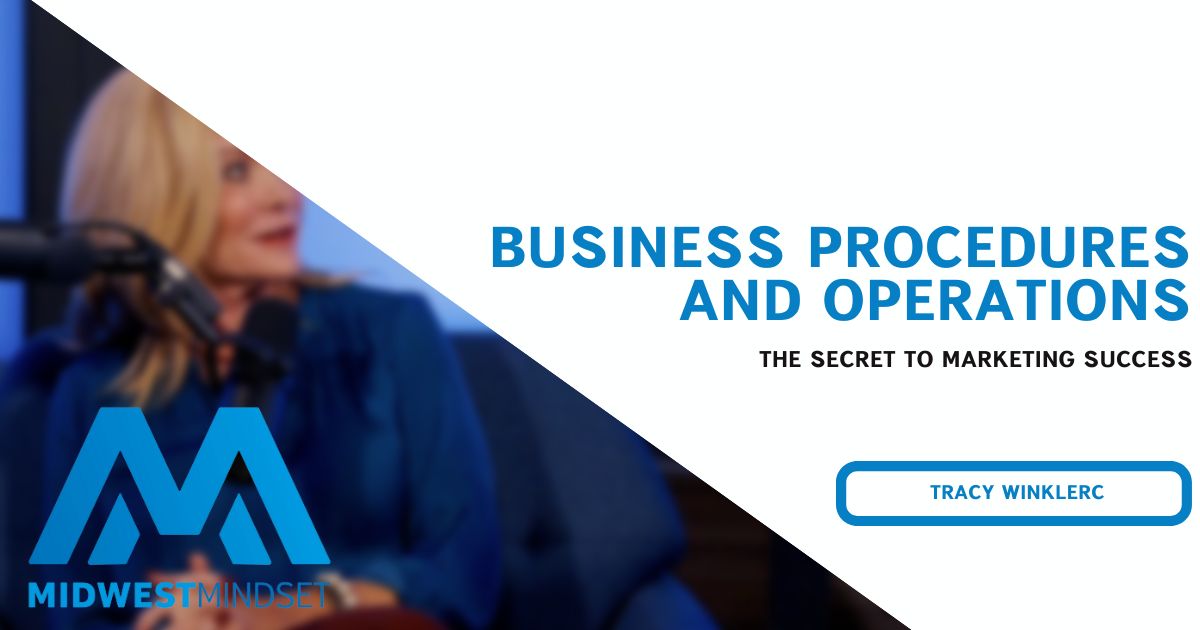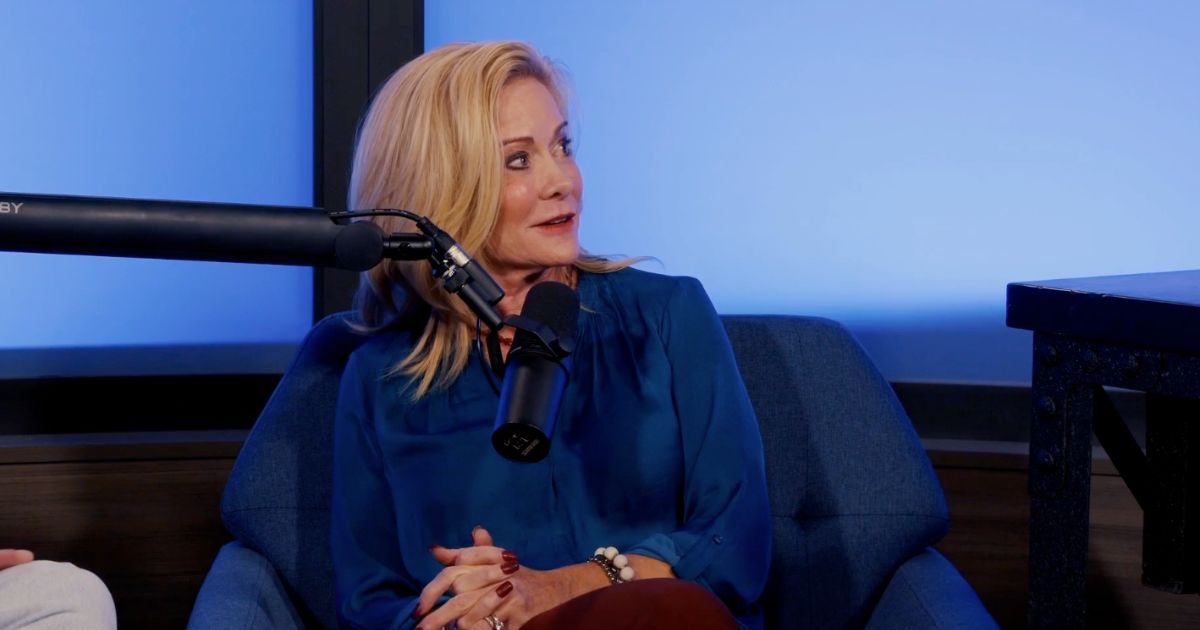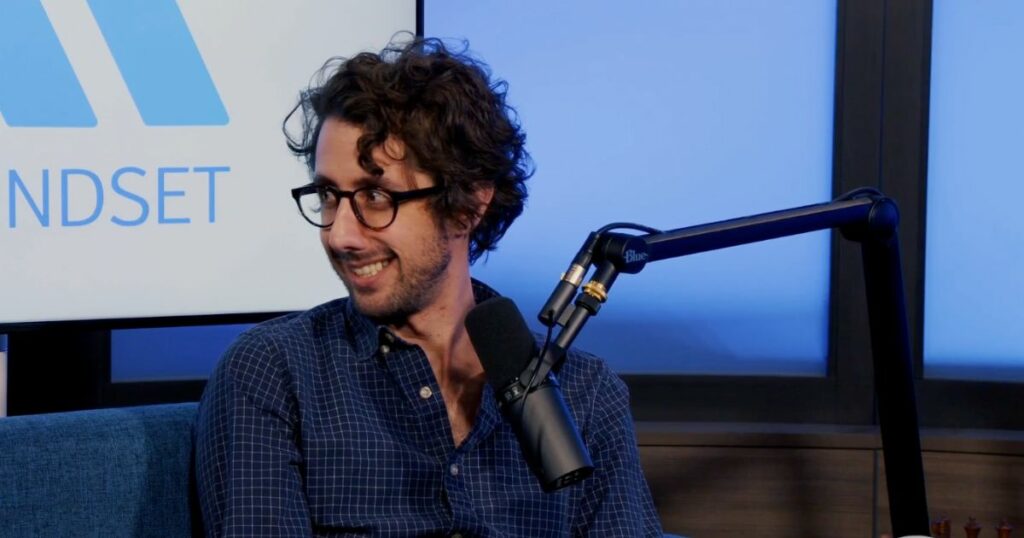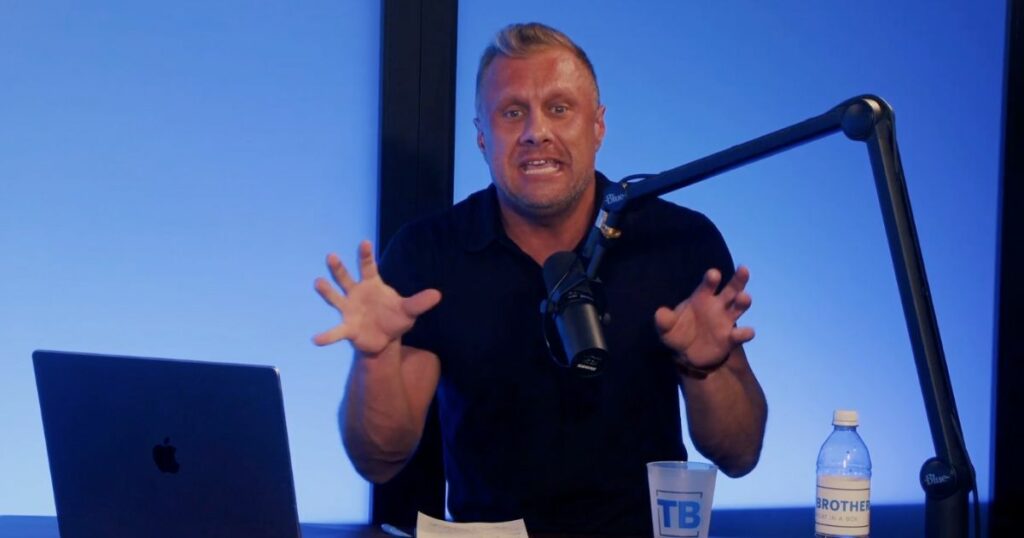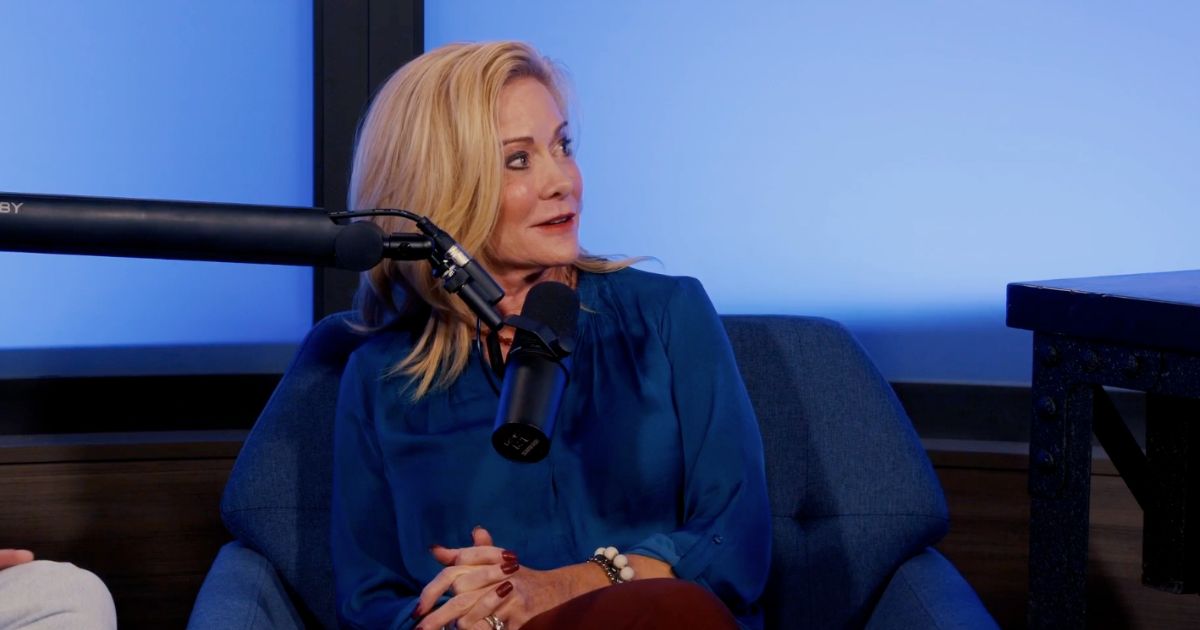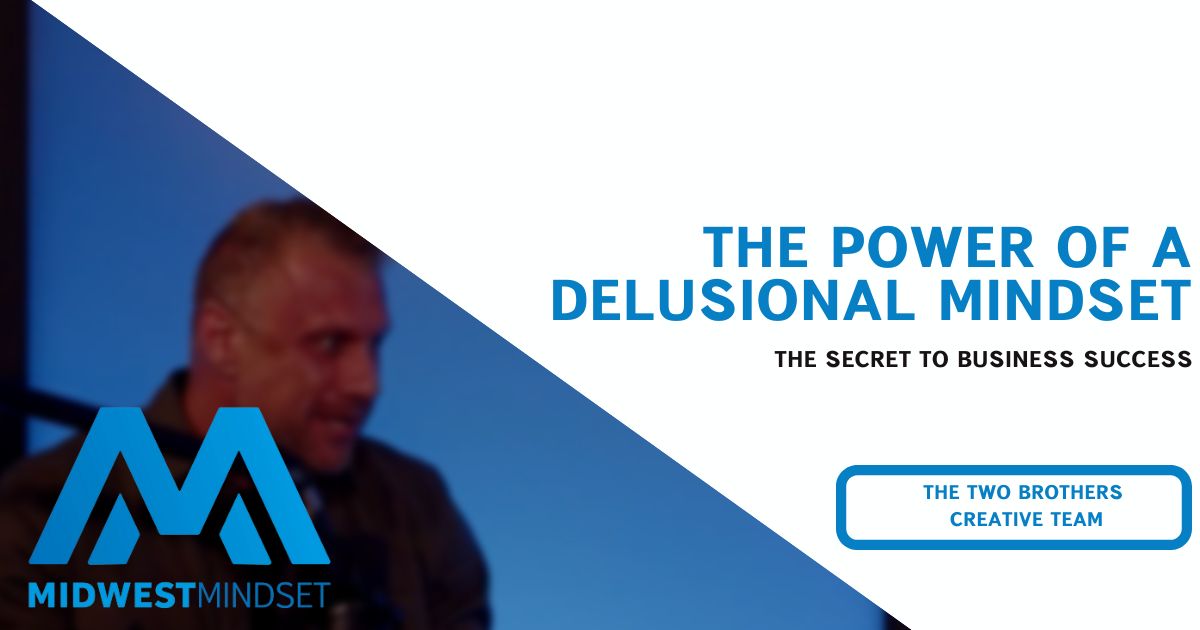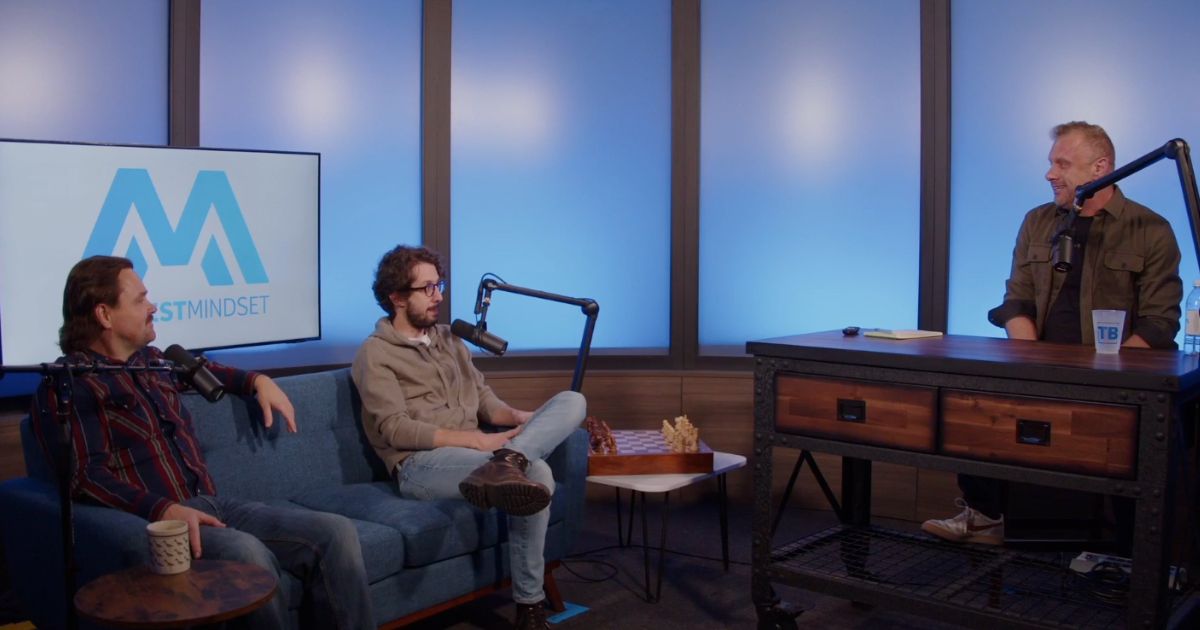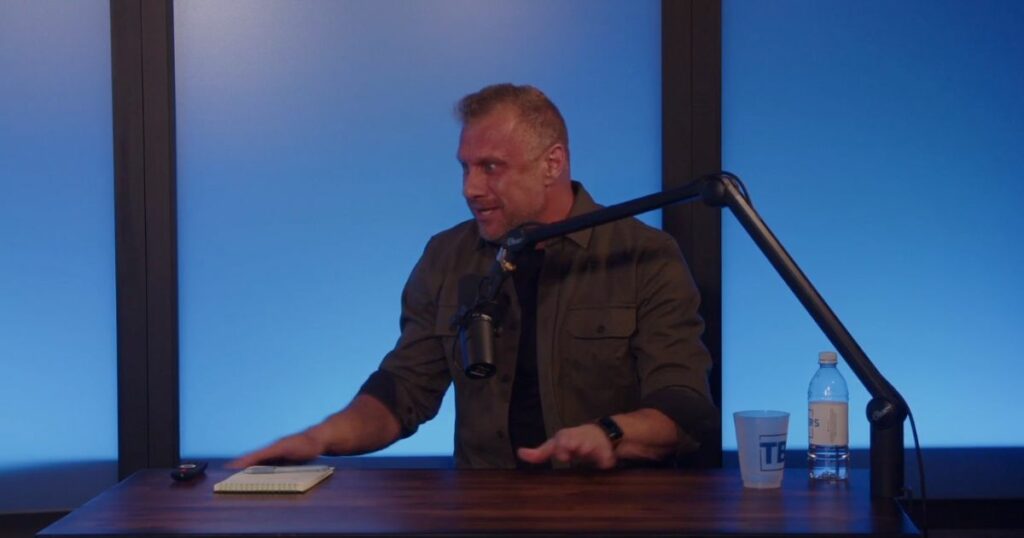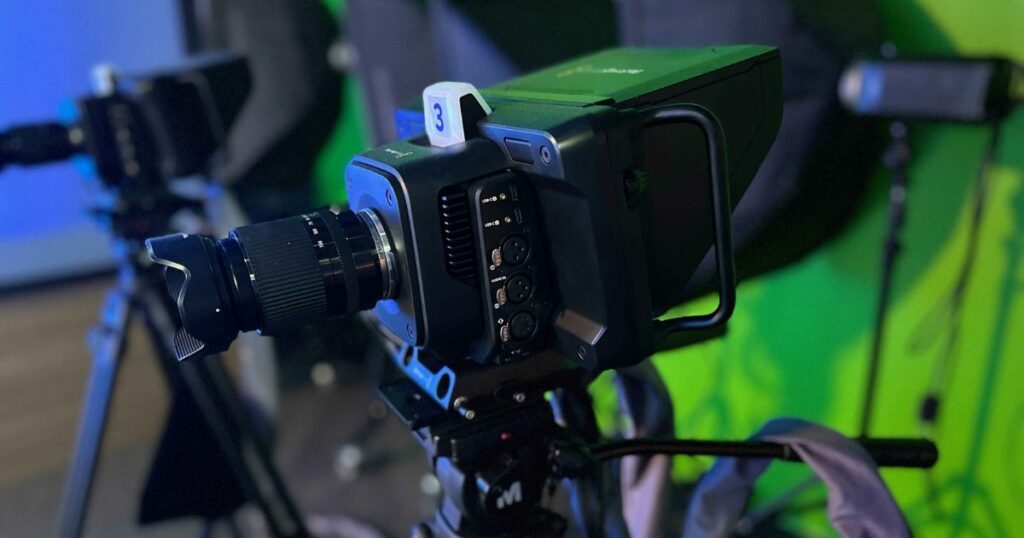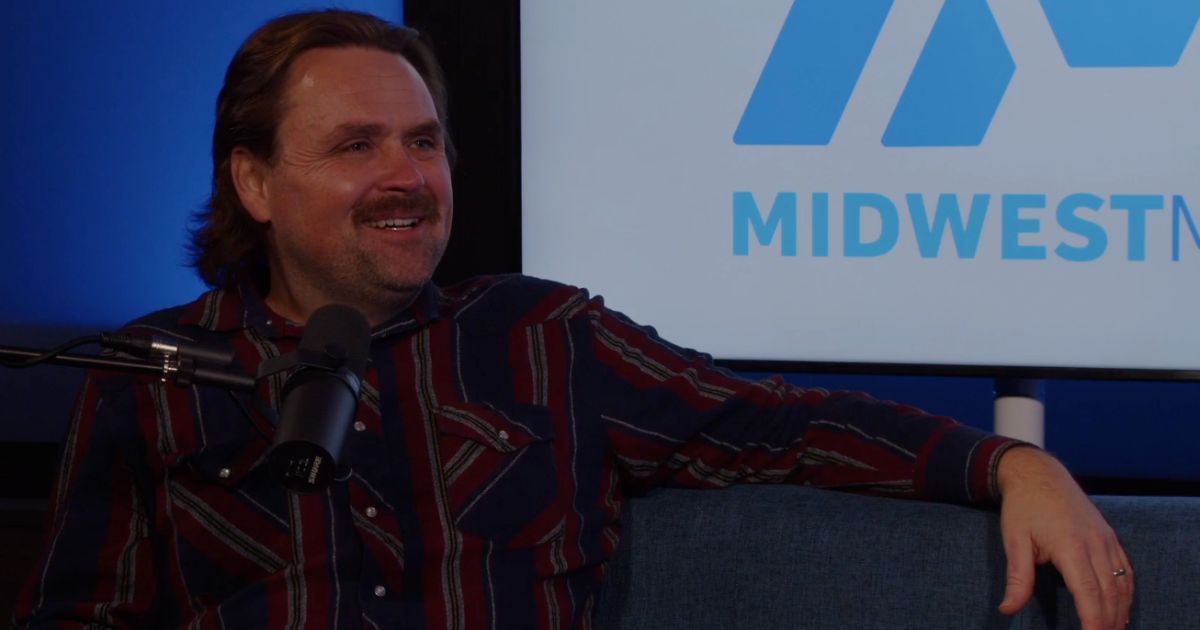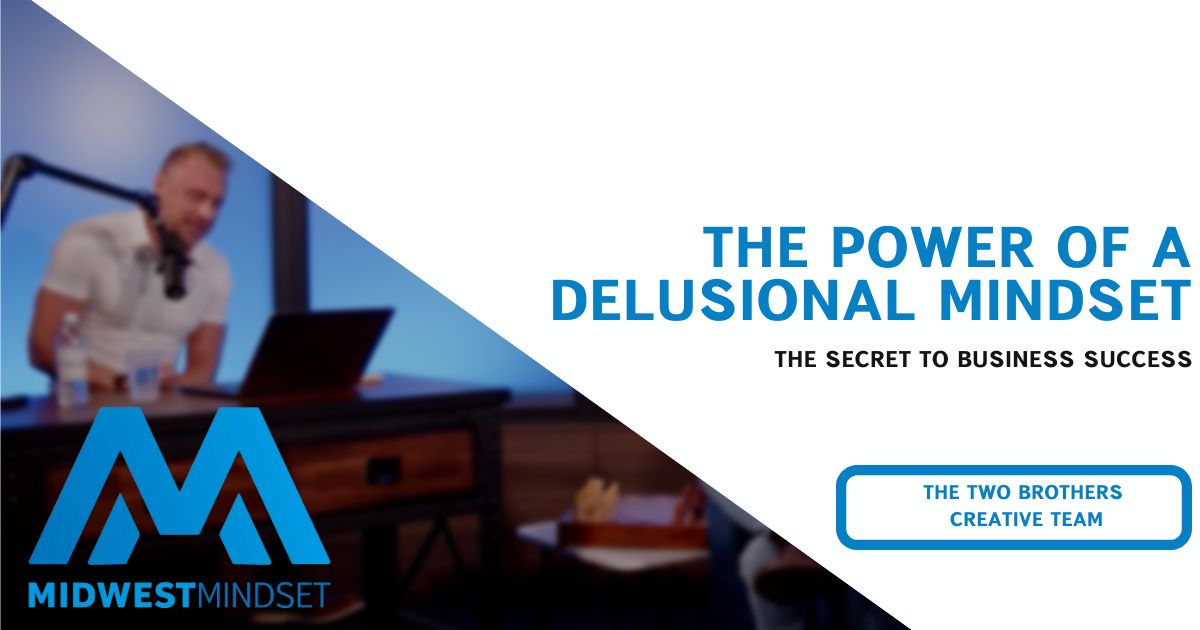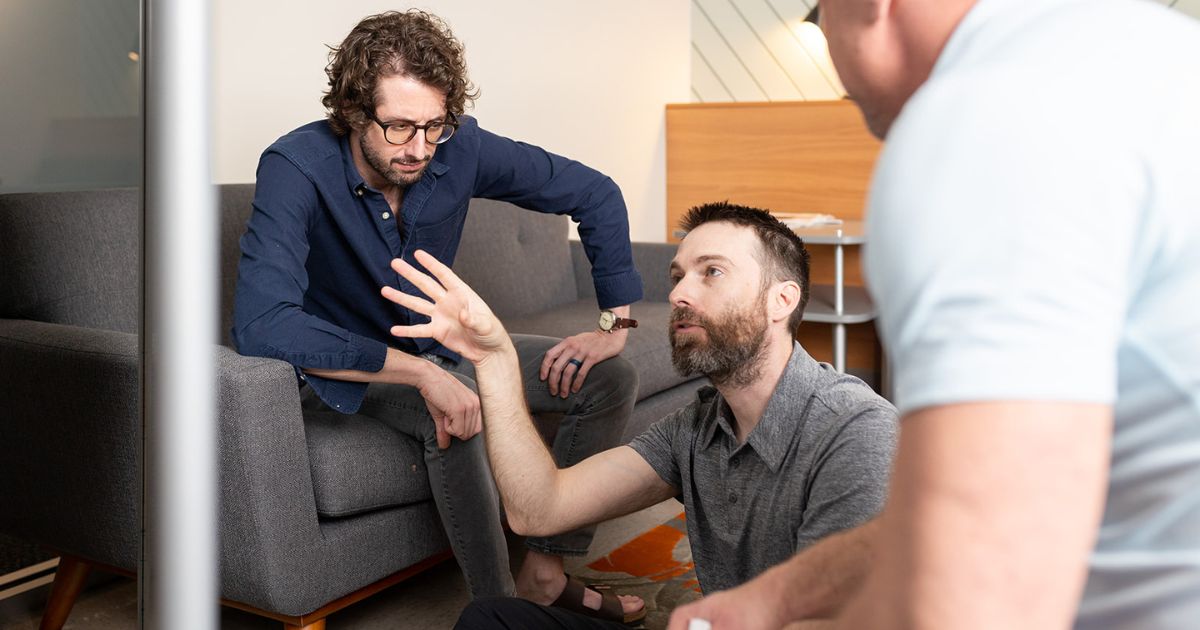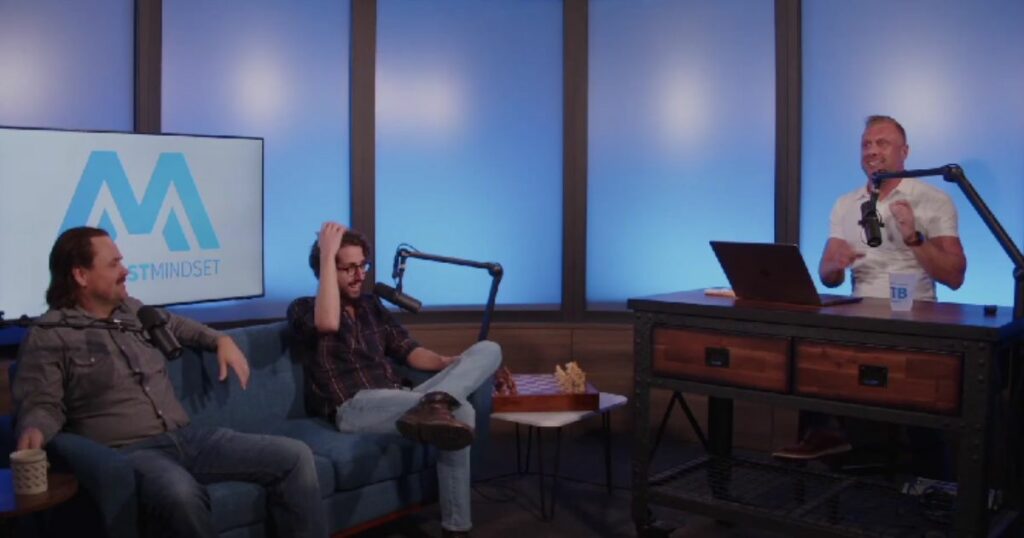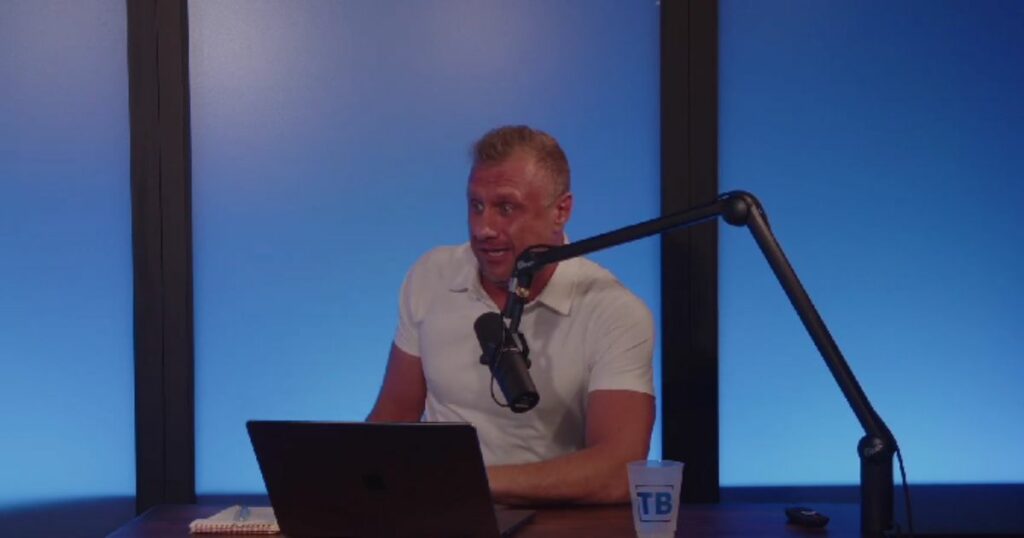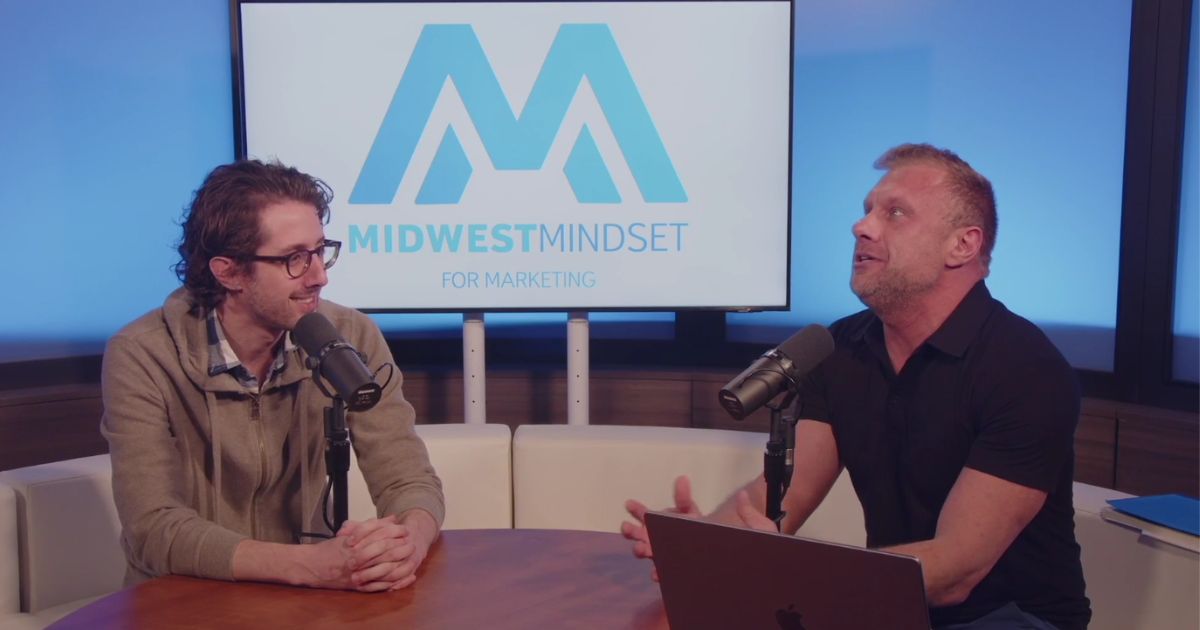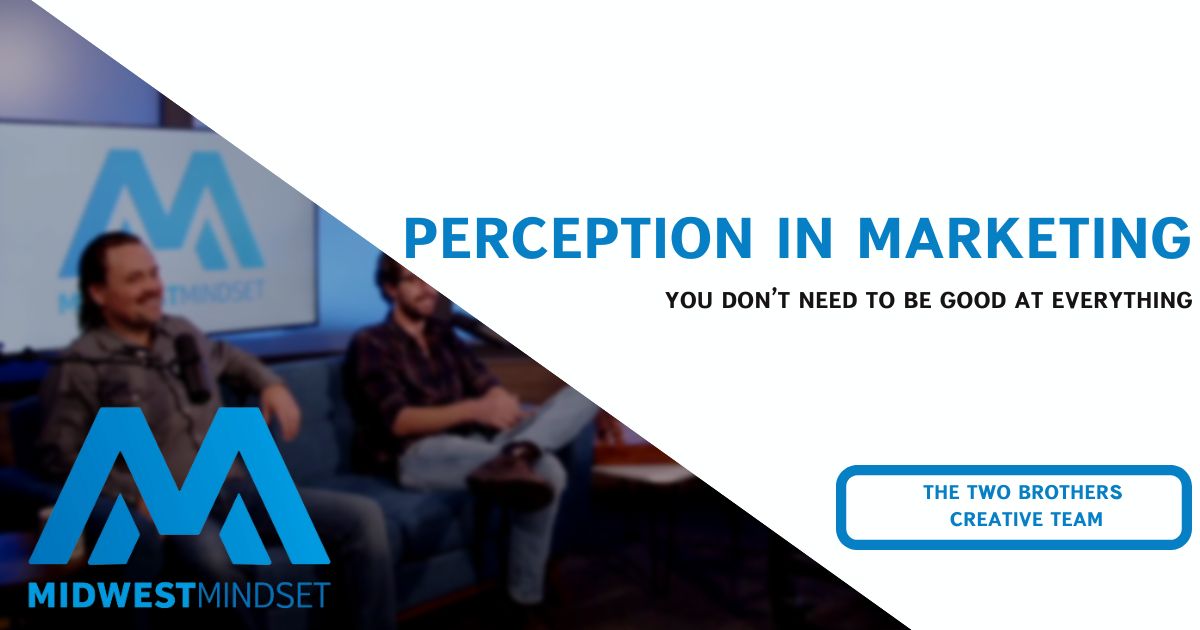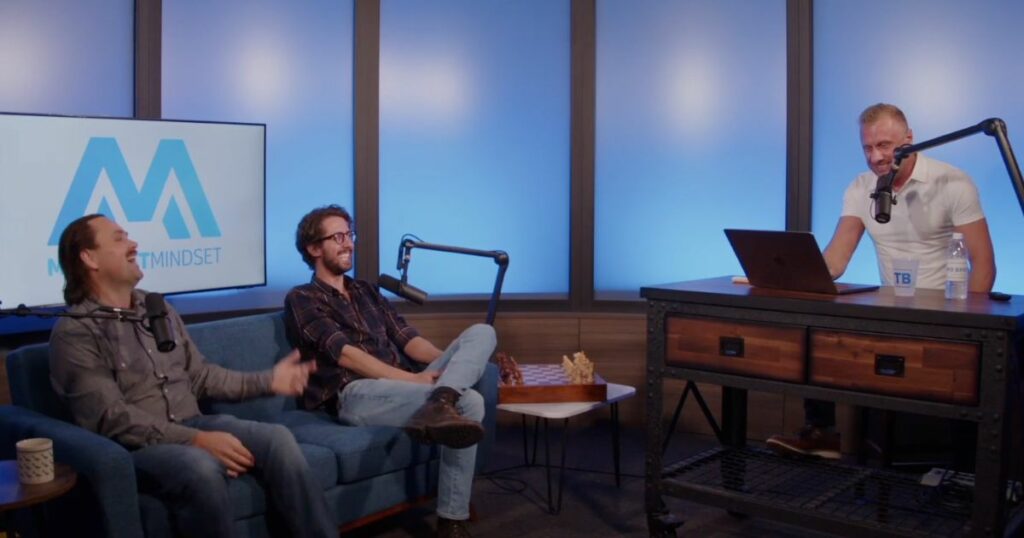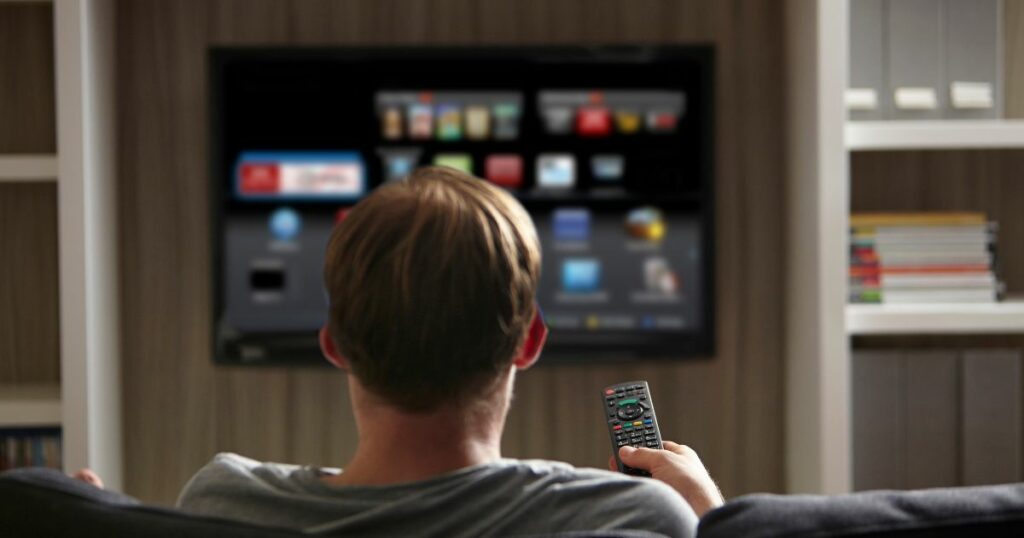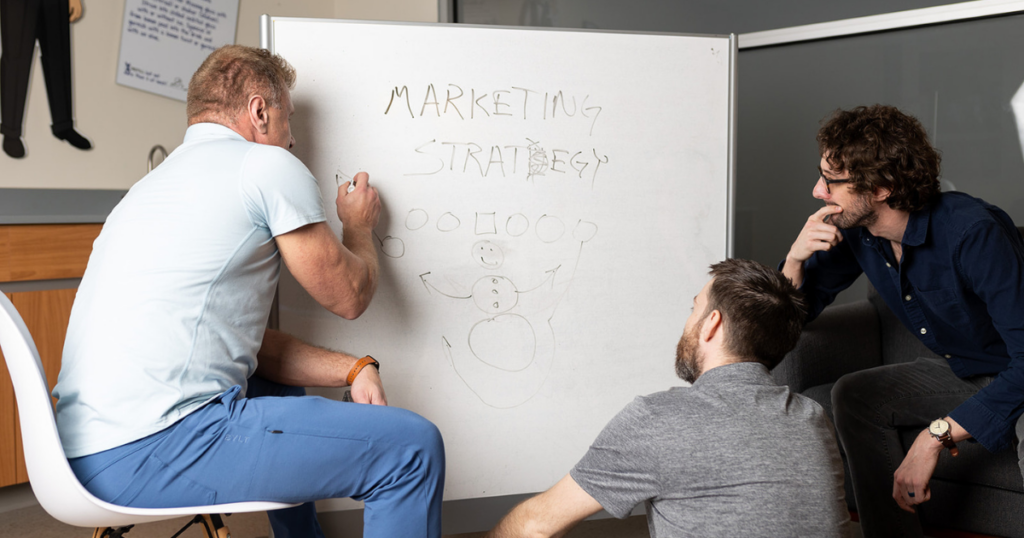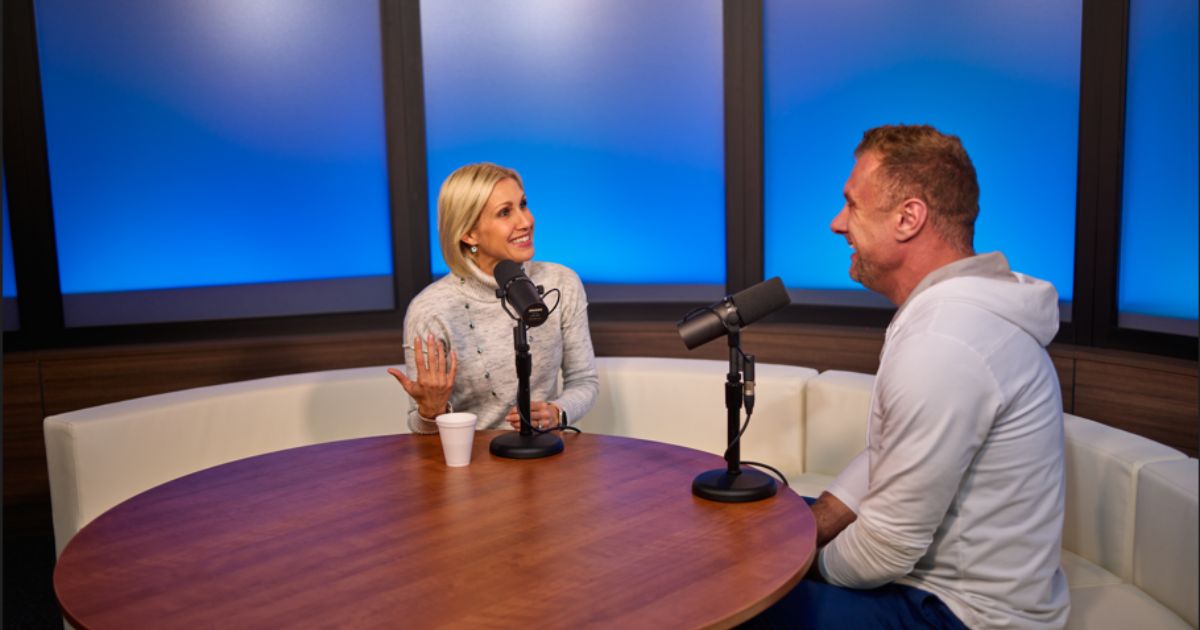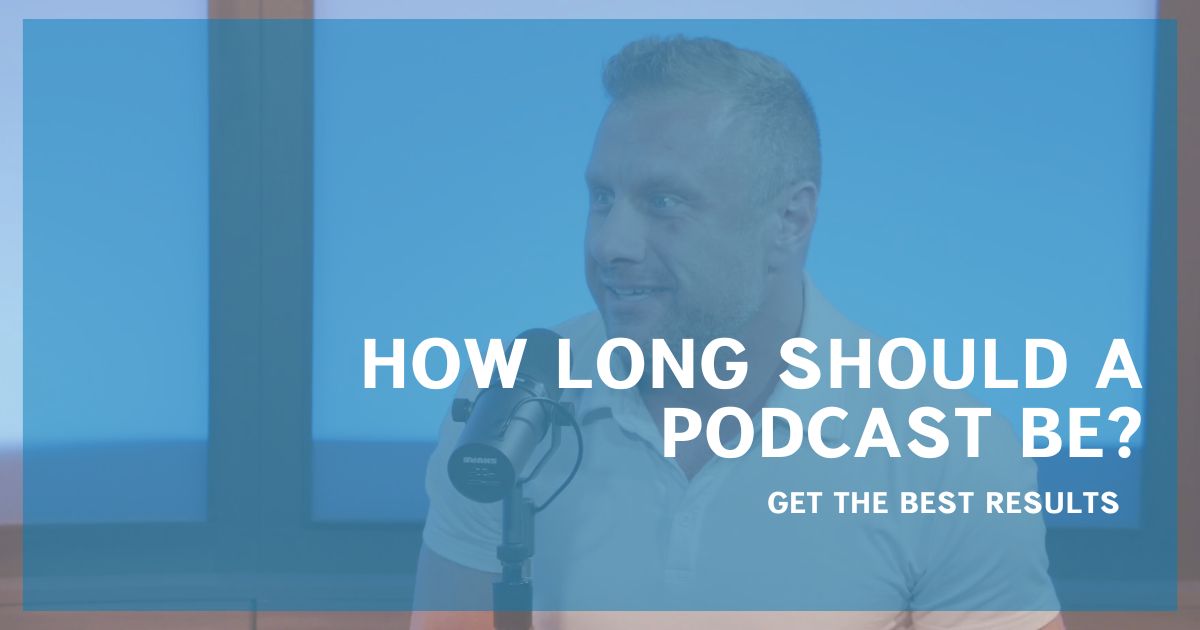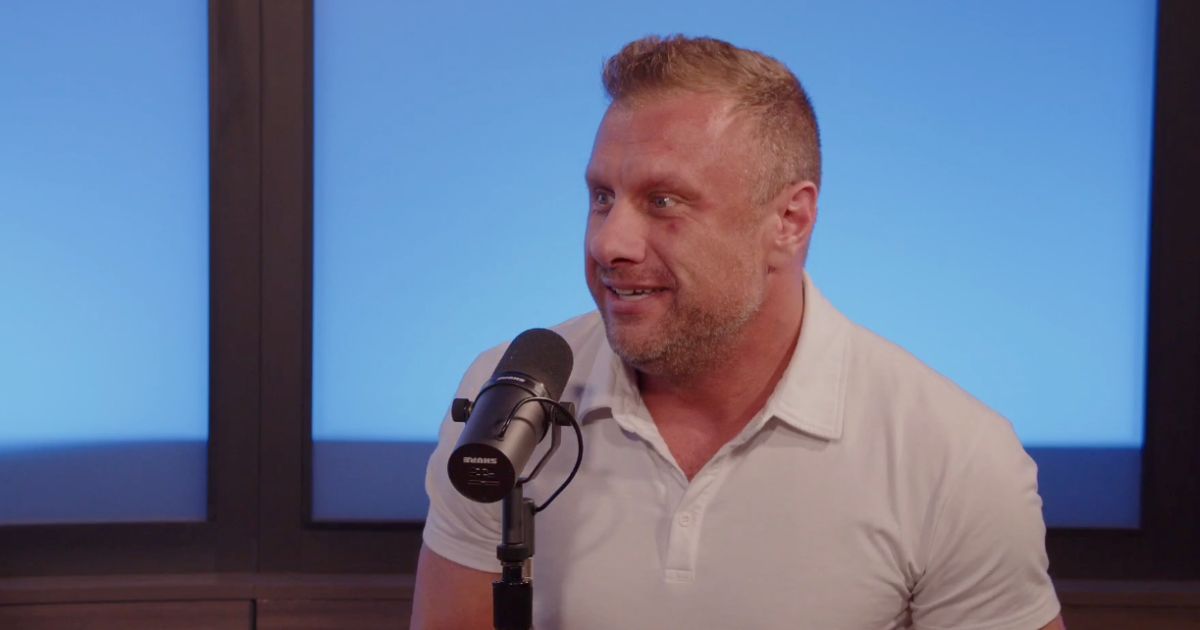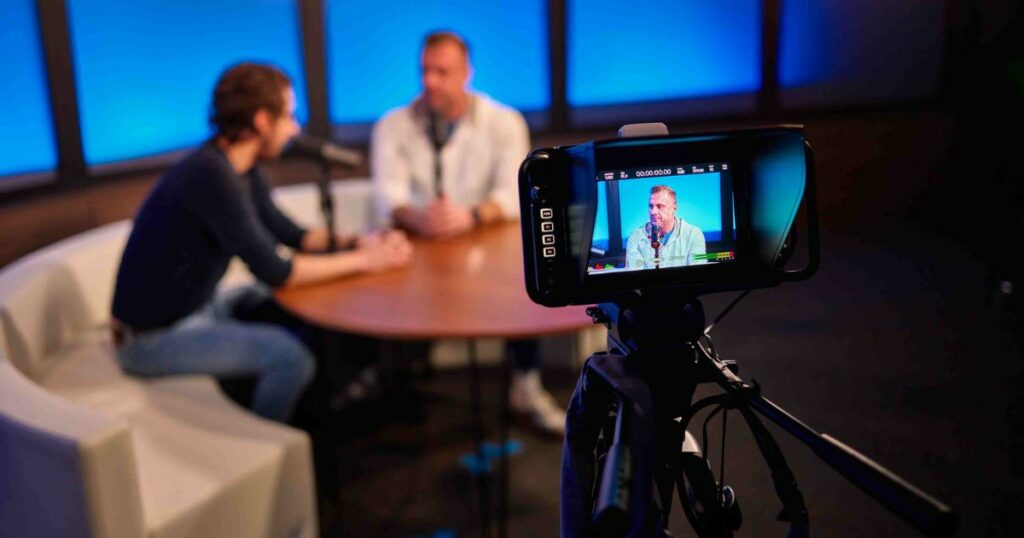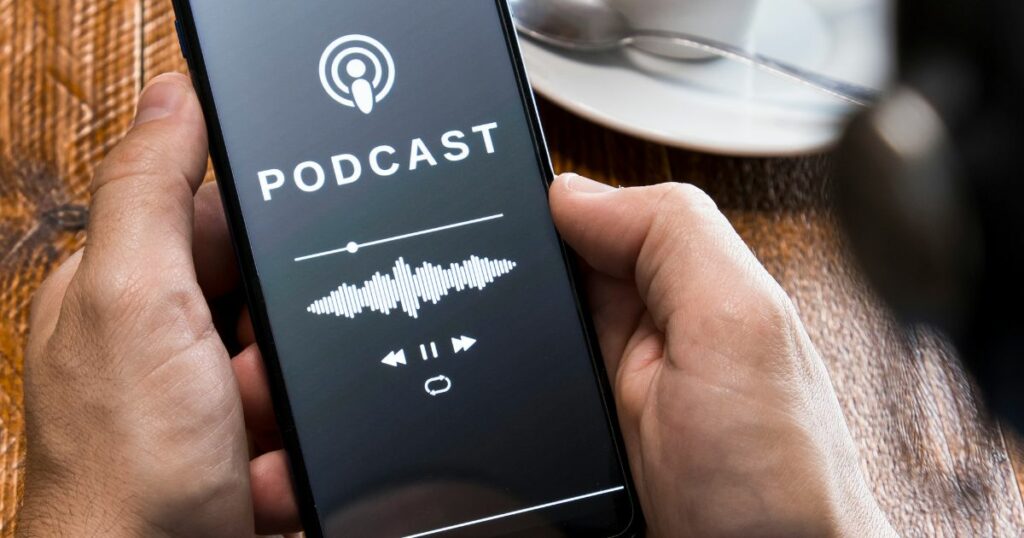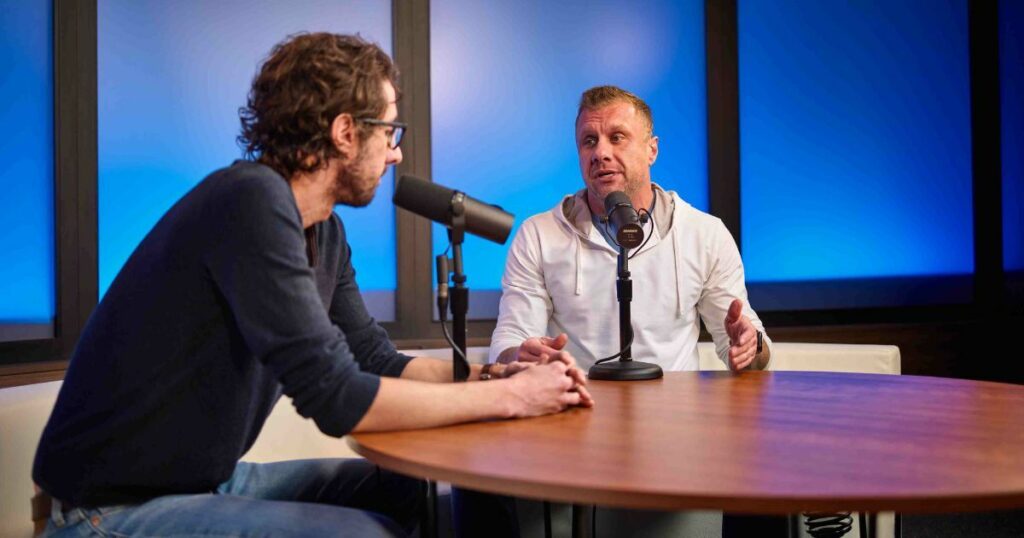The 3 Stages of Relationships
This is a written Transcription for the Midwest Mindset episode: The 3 Stages of a relationship.
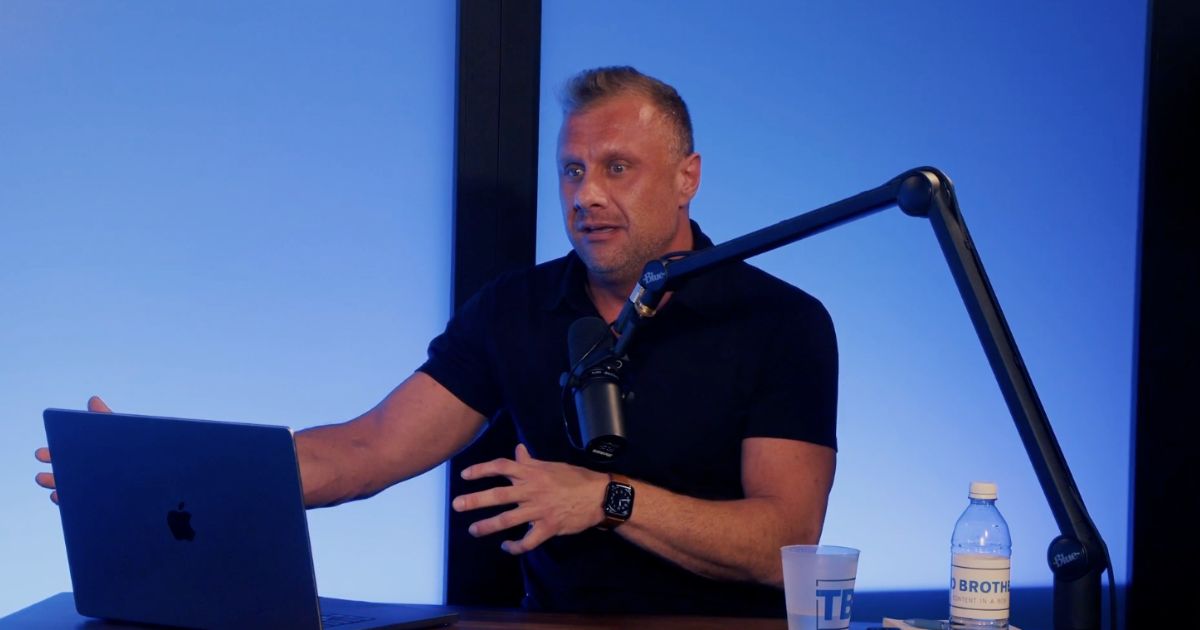
Full Written Transcript of The Episode
The 3 Stages of a Relationship
Speaker1: Curiosity, enlightenment and commitment. We all want those prospects to commit to us in the end. And just like any relationship where you get committed, you have to go through the three stages of any relationship curiosity, enlightenment, commitment.
We’re going to cover those today on this episode of Midwest Mindset and why this shit matters.
Hello and welcome back to Midwest.
Speaker1: Mindset, the podcast that makes marketing easy to understand and simple to do. I’m Matt Tompkins, your host of Two Brothers Creative, where we are making your marketing easy with the Easy Box. That’s why we named it the Easy Box. It’s almost as easy as me, ladies and gentlemen.
Yes, the easy box is where you give us 30 minutes. We give you 30 days of content. The link to get started for free now is in the show notes. All right, without further ado, we got to introduce the two brothers. The crew. Oh, yeah. Yes! Oh, yes. Couple dudes.
Speaker2: Couple of guys, couple of dudes. Couple of dudes in here on the couch hanging out.
Speaker1: I’m just a man standing in front of a girl holding a sign that I’m in love with or whatever. Yeah. What’s. Did you do that? No, I’ve never done that. We have Myron McHugh.
He looks like the kind of guy who is a Civil War reenactor. Yes, and he will constantly argue it was all about states rights. I think that’s the type of he.
Speaker2: Says it was about states rights more than people probably should. And he won’t let it go.
Speaker1: He really clings to it. He’s that he’s that kind of guy. We’re not saying Myron is that guy. He just looks.
Speaker2: Like that guy.
Speaker1: He looks like that kind of guy.
Speaker3: He does look like the guy in every single, like, old Western documentary. Yeah, I watched one on wild Bill Hillcock. I swear he showed up a couple times. He’s in the.
Speaker1: Background. Yeah. Next up, the voice you’re just hearing there, or seeing Austin Anderson, who looks like the kind of guy who, you know, you remind me of if the guy from Miami Vice, if he never went to Hollywood and never got into acting and just lived a normal, healthy, balanced life, that would be you.
Speaker2: That’s a compliment. Yeah.
Speaker1: It is. It’s a compliment. And Ben Tompkins, the other brother you would be. You remind me of Tubbs a lot. I always think you and Tubbs. Yeah. From Miami, from Miami Vice.
Speaker2: Tubbs.
Speaker1: Yeah. Okay. Yeah.
Speaker2: I’m not going to lie. I have not seen that show. Oh, I know of it. Okay. And they never seen an episode. Yeah. Colin Farrell, is that Zac Efron? Is that what you’re saying?
Speaker1: Yes. You look like the kind of guy who brings up Zac Efron randomly in conversations at an alarming rate. Which is true.
Speaker2: I am that guy.
Speaker1: You are that guy.
Speaker2: You are that man.
Speaker1: All right. In today’s episode of Midwest Mindset, we are talking about the three stages of any relationship and I mean any. So this is like your personal relationships with your friends, your intimate relationships with your lovers, your family relationships, your work relationships, and yes, most importantly, what’s feeding the family? Well, you’re buying food. You buy food by making money from your business.
Yes, business relationships and sales, closing those sales. And it is important. I’d say it’s crucial to know how these three stages of any relationship work, because in the end, we’re trying to take people from, I don’t know who you are. I just discovered you to let’s hop into bed together, let’s go to Vegas.
Let’s get married in the business sense. You know, where they’re, you know, a paying client of yours. So we’re going to walk you through these three steps today. All right. So and I would like you guys today because both of you are married still I think. Yeah. Yeah.
Speaker2: Yes. As far as I know.
Speaker1: And Austin, you’ve been married the longest I think. Yeah. Out of all of us.
Speaker3: Yeah. 17 years.
Speaker2: That’s a, that’s a bit. That’s a while. How are you doing, buddy. Yeah.
Speaker1: Is what that is.
Speaker3: That is a stint.
Speaker1: Yes.
Speaker2: And you seem to be okay. You have good flesh tone. Yeah.
Speaker3: Yeah, it’s it’s remarkable. We lived in a camper together for 617 days.
Speaker2: And if you can survive that, I would imagine. Yeah, yeah, you’re in it for the long haul.
Speaker1: The farts alone. Oh, and a self-enclosed place. A space like that would be.
Speaker3: Let’s just say you always know when someone’s going to the bathroom.
Speaker2: Yes, I feel like that’s a lot of what marriage is, is just.
Speaker1: Bad smells.
Speaker2: Hearing one another. Pee.
Speaker1: Yeah, yeah. We have very thin walls in our bathrooms are on top of each other. And yeah.
Speaker3: Bathrooms should be in like a separate wing of the house. There’s almost like a little corridor to it.
Speaker1: I am the kind of guy though. I like to sit when I pee. I find it’s more relaxing. I think it’s a little bit better on your your body, you know, and there’s not any, you know, mess that comes with normally when dudes are standing and just, you know, letting I like to.
Speaker3: Pull my pants all the way down while I stand at the urinal. Yeah.
Speaker2: Saw that the other day. Austin I walked into the bathroom here at work and it was not. It was about I wasn’t pleasantly surprised. I was surprised.
Speaker3: Trying to break that habit since I was eight.
Speaker1: Sometimes I just squat in my shower. That’s what I’ll do. So. So I would say my tinkling is probably not as noisy as the normal guy, but these are the things you have to learn to live with when you’re in a long term relationship. You know when you’re in a committed relationship before you each get committed.
And so the first step of any relationship, and I want you guys to tell maybe a little bit about your how you piqued the curiosity of your mate, because that’s what it’s all about. It’s getting their attention.
Right. So first impression, that first impression that grabs your prospect, your new ideal customer, you’re trying to bring on board as a client. It grabs your attention, establishes your brand quality, even maybe your identity.
And I think some key ways today, with all the content that we are in a content creation universe, it is just a Mecca nirvana for creating content. It is a very easy and affordable way for you to be seen as an expert, as a credible industry leader, a leader in your field.
And then you could follow that up with 6 to 8 more of those impressions, like, let’s just it’s a marathon with putting content out every day.
But it’s all about making that impression, right? It’s about grabbing their attention in a way for a reason. You want the attention to be grabbed. So not for some scandal like Ben has had many.
Speaker2: Yeah. So I’ve met all my other girlfriends.
Speaker1: Ben had a sex tape once, you know, that came out, and.
Speaker3: I’ve seen it.
Speaker1: He was the only one in the sex tape. It was the first ever solo sex tape.
Speaker2: And I released it myself.
Speaker1: Yeah, Ben leaked it himself. So how was it that you guys piqued the curiosity of your wives? Because Ben’s married now, too, man.
Speaker3: Well, we met in in high school, so I was a sophomore.
She was a freshman drama class, and, I mean, so we were young. So I liked corn nuts, and I would eat corn nuts and then just blow the smell up into her seat so that she could smell the corn nuts and turn around. And then. What is corn? Nuts are gross.
Speaker1: Your relationship has always been built on just bad smells. Yeah.
Speaker3: So yeah, but I mean that that got the, you know, that started the conversation I suppose. So that’s probably not what you want to do.
Speaker2: Right. Corn nuts.
Speaker3: So you’re trying to close a sale.
Speaker1: If you’re trying to get a new client 15. If you’re trying to land that new customer, eat some corn nuts and blow it in their face. Find them.
Speaker2: Loves that. Find the metaphorical, find the metaphorical corn nut in your life. Yes, and blow that in your client’s face. Yeah.
Speaker1: There you go. That’s a tagline right there. Yeah, I think we should use that for our marketing company. So. So you piqued her curiosity. And, Ben, did you have to do anything? Because I know you had, like, an interesting story with how you. She found you for some weird painting.
Speaker2: Well, I was, yeah, we met later. Kind of the opposite, where we were in our mid 30s and we met online on him and.
Speaker1: Was saving himself.
Speaker2: And we she found I liked her a photo of, of hers. And then she looked at my profile and I had a video of me painting what ended up being an absolutely horrible self portrait and that made her laugh. I gave it to her as a as a gift. So she still has it, but it’s fantastic.
But with with that I would say, piquing her curiosity with humor. She really attached to that. And that’s what started the conversation. And I would.
Speaker1: Say too, because Ben went through this, I haven’t been through this myself because Austin, you and I, we got, we got we got into the
The Old Wives Club a little bit before the social media took over our lives. Yeah. So we did not experience the online dating. I remember when was the last. It was like one of the first platforms they had and it was called Hotornot.com. That was like one of the first dating websites.
And all it was though, was just you put a photo of yourself up and you got rated between 1 and 10 other people rated you.
Speaker2: Oh yeah. And that judgmental. But that was all that it was.
Speaker1: Yeah. And so it was just you were really rolling the dice. Oh man.
Speaker3: On that. That’s like playing Russian roulette with your emotional stability.
Speaker1: I walked away with a seven. I’m like, I’m like, that’s like a ten. Am I like, yes, thank you.
Speaker2: Just be above a five.
Speaker1: But since then it has evolved.
And I think this runs parallel with what businesses go through with social media. So Ben, you experienced it all the good, bad and the ugly with dating or trying to date on on dating apps like Tinder, Bumble I think Grindr’s another one.
Speaker2: Yeah. You know, I dabbled on all of them and all of them.
Speaker1: Duolingo. I think it was another dating app that Ben was on. It was where you learned Spanish while you date. Right? And, you know, it’s.
Speaker2: My my perspective of online dating similar to with businesses. You know, when you’re in your early 20s, you’re going to experience things differently mid 20s, late 20s, early 30s and just how you’re going into it when you have what if you know what you’re looking for and that your type of character and personality, certain characters and personalities do better with online dating than others. Same with businesses and social media. Same kind of thing. I overall there are tremendous cons and problems with online dating, but overall I think it is has evolved into a pretty effective way.
Speaker3: I’ve met somebody, I’ve met a lot of couples that that’s how they met. And I mean, they’re surprisingly they’re perfect for each other.
Speaker1: Yeah. I mean, there’s like, you know, farmers only Christian Mingle, like there like there’s some, like ones for people in their golden years, which is, you know, the golden Ashley Madison. Yeah. About to die. Madison is another good one. Yes.
Oh, yeah. Preferred 401 I think is another reputable platform for, you know, both finding a potential wife, future husband or just hiring a, you know, a sex worker. I mean, there’s just a lot of options out there.
My point, though, is that it runs parallel with because we had to relearn, reprogram ourselves on how to pique the curiosity out of the gate. Businesses are having to do this now, and it’s a major pain point because there are so many different platforms. They’re always changing and evolving and so you have Facebook Reels and Instagram Reels, you have TikTok, you have YouTube shorts, you have how many times should I post?
Oh, I got stories. Now they’re saying I should post every single day. How long should these videos be? What type of content should this be?
And so just to simply grab someone’s pique, someone’s curiosity, grab their attention. It’s similar to like dating like.
And that’s why you see a lot of people go into extremes. Or it’s just shirtless dude with a six pack or, you know, in Austin’s case, shirtless dude. Yes, six pack, maybe somewhere in there. But, you know.
Speaker3: Buried my son. Once I was got done working out, he was like, dad, where’s your muscles? And I’m like, I hide them under a layer of fat in order to trick my enemies. You’re like.
Speaker1: A bear, bears. I think you’re the same thing. So?
So you have to pique their curiosity, and you have to do it in a way that is going to reflect you in your business accurately, so that it doesn’t do damage because you don’t want to do things that are that push the line edgy, scandalous in a way that isn’t genuine to you. You know, if it’s forced. If it seems fake, because that’s going to have the opposite effect and that can have a first impression, can last forever, good or bad. The other important thing with curiosity.
Don’t sell them anything at this stage in the relationship. You do not sell them anything. You don’t make an ask. You only give them something of true value.
Speaker3: It’s almost like finding and waiting for the right opportunity to kiss them. Like if we’re going to relay that comes in.
Speaker1: In light enlightenment probably. Yeah.
Like the curiosity. It’s like, you know what? You don’t get to pressure, babe. I’m not going to ask you out here. I just said babe. Like, if I ever say that in real life.
So, like, with the curiosity, it’s kind of a no pressure zone, right? I mean, nobody likes the guy. Trust me. I know, because I was that guy who is just, like, quasi like stalker vibe where it’s like, oh, you want to go out, you want to go out, you want to hang out, you want to go out. I mean, nobody likes that kind of relentless pursuit, you know?
And they make it seem romantic in the movies. But when you show up in a girl’s front yard with a boom box above your head in the rain, in the rain, they just call the police.
It works differently. It’s a different universe for John Cusack than me. So, curiosity, you piqued their interest. Number two enlightenment. So this is where you show that there is something more to you, to your business.
So you can’t bore people into buying you. So you have to have engaging content in multiple, multiple forms. We encourage you.
We’ve talked about this before in the podcast to market like a farmer. And so you have like a hunter mindset, which is like, I’m going to go get sales, go get my dinner so I can eat tonight. Farmer mindset is I’m going to plant a seed. I’m going to slowly nurture it till it grows.
Then I can harvest this crop and then get the seeds from that, and it’ll all have a full belly for the rest of my life, because it’ll just keep feeding and fueling itself. And so you want to have this long term approach where again, you aren’t selling them on anything, but you are showing them, right, that you.
You have something more. There’s a deeper level. So, like, you know, Austin isn’t just a hot dad bod. You know, he’s also a really funny guy. He’s talented. He’s got some brains and some smarts in there, too. Are you two.
Speaker2: Dating?
Speaker1: Yeah.
Speaker3: This is where the ask is.
Speaker2: He’s gonna try to kiss you. Austin.
Speaker1: We both been in long term relationships. It’s tough. How long.
Speaker3: Have you been.
Speaker1: Married? Married for 12 years together, though. Is because that’s what I count. How long have you been together? That’s going on? 16. 16 years, 16.5 years. Something like that. We just did 20 years.
Speaker3: We just hit 23 in September. Yeah.
Speaker1: I probably got both of those numbers wildly inaccurate. And we’ll hear about it later when Wendy’s listening to this episode of the podcast.
Speaker3: Well, you got to say real quick, how did you pique her curiosity?
Speaker1: Well, so I was on the radio. So she I mean, she became a fan girl pretty much right out of the gate. I mean, come on, let’s be honest. Voice like this back there, I had big, poofy, horrible hair too, you know, it was a little chubbier, so I had everything going right for me. I mean, talking about.
Speaker2: Corn nut breath.
Speaker1: Oh, yeah. I was on a m news talk radio as a producer. So, you know, a lot of blue haired old ladies coming around after hours. And, you know, I mean, I did. I had one woman. She was very, very large woman. I mean, we were talking like she could be on have her own show on TLC. Sent me a nude photo of her and her husband telling me, this is like my first six months of working there, that they like to make love to each other with my photo up on their computer monitor.
Speaker3: Oh man.
Speaker1: Yeah, the world is weird world. You think they’re a bunch of squares? But no, they know how to party. They know how to party. But. So she heard me on the radio, so I had that going for me.
And then we played in a band too. We were playing in a band, so we had like the whole, I think I want to be a rock star, even though it was probably wildly embarrassing compared to how it played out in my head at the time, it was a lot cooler in my head than maybe how it looked, but so. So I had that going for me.
So you want to pique their curiosity and then the enlightenment part. So like with the enlightenment part, you know, Wendy and I would we would spend quality time together. You learn, you find out that, okay, this business, it isn’t just this one thing or. Yeah, that was kind of a funny way to grab my attention, Geico.
But it turns out Geico does all these things that are in line with my core values. You know, they’re military based and they support the military. Whatever your your company or you’re a lizard, they have a lizard, a talking gecko.
Speaker2: That’s my core value. Talking animals.
Speaker1: Specifically lizards. Yeah. Yeah. I want that lizards tail to fall off.
Speaker2: Oh, it’ll grow back.
Speaker1: Yeah. So you want to enlighten them.
Speaker3: Filed insurance claim on it for Ben.
Speaker1: You know he’s a musician. Very talented singer songwriter, very talented writer. He’s a teacher. He’s, you know, he’s, you know, he’s teaching. He’ll be back teaching someday here.
Speaker2: And you talk about core values. And when we being in our early 30s, we both knew what we wanted in a relationship. And so we were able that was probably one of the biggest adhesives that stuck us together and kept us interested in one another, because we knew long term that we’re not going to waste our time, which you don’t always have that in your 20s and other relationships. That’s a great.
Speaker1: Point for businesses, though, because I feel like businesses often don’t know who their ideal customer even is, like who they even want to be in a relationship with, or.
Speaker3: Even who they are.
Speaker1: Or who they are. They don’t know who they are. Like, if you can’t love yourself, you can’t love anybody else. Austin.
Speaker2: That’s what the point of this podcast episode is really about prevention. Another intervention. Love yourself each episode.
Speaker1: But you’re right. I mean, and I think that’s why businesses, they try businesses try to date everybody. They want every customer and they say, who’s your target audience? Everyone. I want everyone to come into my store.
Speaker3: They’re bisexual.
Speaker1: If you say if you say your audience is everyone, it really means no one. That means you don’t have anyone. You don’t know who your ideal customer is, you know, and you can have you can have, you know, you know, polyamorous relationship all day long. We’re not going to judge. We’ll support you. However, you need to know that that’s what you want, right? That’s the key.
Speaker2: Is it polyamorous or is it polygamous?
Speaker1: Well, no. Polyamorous is where you are dating in a relationship with multiple people. Okay. So like a throuple would be polyamorous a lot of times. Polyamorous are often in open relationships. They can date other people outside the relationship. Polygamy is where it’s like one. It’s that’s illegal. That’s where it’s like one guy who has like ten wives. History has shown us oftentimes they are underage, to say the least. And that’s where it gets kind of creepy and weird, right?
Speaker2: We don’t support polygamy.
Speaker3: Yeah. And plus the guy, I mean, how could he deal with that many women in the house, I hope. And because they’re going to fight each other for his attention.
Speaker2: Well, you said that.
Speaker1: Yes, that was Austin Anderson who said that. Ladies, Austin Anderson. Yes. I’d like to see a show on TLC where it’s like it’s the opposite. It’s like reverse polygamy, where it’s like a woman with like ten dude husbands. Is that does that exist? No, I’m saying I wish it did.
Speaker3: Only in the Bee Kingdom.
Speaker2: Yeah. The bees, they’ve got to figure it out.
Speaker1: Queens. Yeah. That’s true. Queen bees. That’s true. So we have curiosity. Grabbed their attention, piqued their. Just enlightenment. Show them there is something more to you and your business. Show. Show them what you are all about. You know you showing off the body to grab the attention.
Now you got to show them your mind.
Show them that you’re something more. You know, I like to use the analogy of like you see a, you know, like me, for example, running down the beach, you know, got my my Speedo, obviously, you know, you see me, I grab your curiosity right out of the gate because.
Speaker3: Because it’s an American flag.
Speaker1: It is an American flag, Speedo and.
Speaker2: On the front. But like some other country in the back. So you’re kind of confused.
Speaker1: And it’s got an American flag flag flying behind me. So as I run, it’s it’s like it’s really having an effect on tail. Yes. I mean, the muscles, the six pack, the just the fake tan, it’s all there in your face. And I have got your attention. I have piqued your curiosity. So then I walk up to you and you’re like, oh my God, now what’s going to happen here?
And then I start speaking in three different languages. First, you think I’m a little crazy because I am, but I also speak three languages and I have a PhD. I’m super smart. I’m a single dad and I volunteer for. I don’t know what’s like a good.
Speaker2: Um.
Speaker1: Uh, the Make-A-Wish.
Speaker2: All right. Sure.
Speaker1: Yeah. So you find out all these.
Speaker3: Things you deliver kids to their make a wishes, it’s like.
Speaker1: Wow, this guy is he deliver wishes, sexy douchebag. He. There’s actually some substance to this.
Speaker3: And he just didn’t know what language I spoke. That’s why he did three, right?
Speaker1: That’s why he did three back to back. I do that sometimes, though. Again, at the end of the enlightenment phase. Don’t sell anything, only deliver more value. So that’s all you want to do up until the final stage, which is commitment. So curiosity, enlightenment, commitment.
Speaker3: Of value like when you say deliver more value what like if you were talking to a business, just what’s an example of what you.
Speaker1: So for example you see this oftentimes online like you I want to download this free template or this worksheet or this workbook or this journal that I can print off and use again and again and again. Right. In order to get it, I have to give my email address. So people tend to equate the value of their email address to 10 to $20. So they will give you their email address for something that’s worth 10 to $20. So if they see something of true value. So let’s say you let’s say you do a podcast episode like this one here today. And we have what we call a lead generator.
So at the end of this episode, I’ll say, hey, if you want to download the, you know, seven key steps to Writing the best SEO blog article for your business.
The link is in the show notes. You can download it. It’s free, it’s free. It’s something of value. People will say, okay, well, to get it, they give me their give us their email address.
So now we can begin to nurture this relationship. Right. But even after they’ve given the email address and this is where that mistake can happen after enlightenment. So they’ve learned something.
We’ve given them an episode of something of true value. We gave them this cool daily planner or PDF or a checklist or something that they could really use. It’s also free, no strings attached. All we’ve asked for so far is just an email address. Pretty, pretty low request, right?
But it’s easy to make the mistake of jumping into commitment too fast, too soon. And then we say, buy this thing or make this decision, or schedule this meeting instead of just continuing to deliver something of true value. The best way to sell something is to not sell something. I have found like it requires patience, grace, and some virtue. You got to like kind of sum it up to be able to just not not jump the gun. I think you hit.
Speaker3: The key word there is patience. In so many aspects of life, but in that as well, just selling. Because I know you know from my past experience selling stuff. Yeah, when you’re not patient and you just want that sale right away, you normally don’t get that sale.
Speaker1: No you don’t. And it’s a it’s a vibe. It’s an energy that you put out. It almost is this like air of desperation to it. And so this applies to like when we were dating too. I mean, I remember we’d go out and when you walk up to somebody at a bar and you’re trying to, you know, put your best moves or your, I don’t have any moves, but like your best pickup line or whatever, and it falls flat.
Speaker3: That’s a good stretch. You got to, you know.
Speaker1: Yeah, I got the moves. I got the moves straight up.
Speaker2: Yeah, yeah. Oh, yeah. That’s what it looks like.
Speaker1: That’s what it looks like. You see me up.
Speaker3: There on stage. Those my band.
Speaker1: I’ll never forget my buddies when they would take me out to these clubs. And I hated going to clubs. They’re loud. You couldn’t hear anybody, and they would go on on the dance floor and just start dancing with random women. And so they were like the cool, you know, good looking guys. And I’m just like the I’m the funny guy entertainment sidekick along for the ride. And so I remember one time they’re like, come on, come on, just get out of here. I’m like, I can’t do this. I don’t even know how to do this. You just go up behind somebody, you start dancing, and pretty soon you wait. They’ll turn around and they’ll give you the look. And so I did. I walked out and I was like, started dancing.
Well, sure enough, there’s this girl back to me and she’s dancing and like, next thing you know, we’re dancing together.
And I’ll never forget the get the look of terror on her face when she turned around and I thought she was going to scream or something. It was just it was like, no, no, no, no, no, no, not interested in you at all.
So I jumped the gun. Now, had I given it more time and said, hey, maybe talk to her before I go up and try and dance behind her on a dance floor. You know, it worked for maybe it works for those guys. Some people jump into commitment.
Speaker3: Some people can pull that off.
Speaker1: Yeah, some people can do it, you know? So some key things to closing the deal or the sale.
Are you making the ask. Are you calling them to action? Are you even. Because we do this a lot where we think we’re making the ask, but we’re not on our websites. We have no call to action. It’s really hard to find like, okay, what am I supposed to do? I’m ready to buy. I’m ready to commit, but how do I do it? And then painting a vision of the stakes at hand.
So here’s what happens if you take action with us. Here’s how it happens if you don’t. But again, don’t pressure them, you know. And if you make the ask and they don’t buy it yet, then reintroduce the next leg of your nurture campaign, which goes back to enlightenment. So it’s just this cycle of you keep going and you have to wait. You have to be patient.
When they’re ready, they will say yes. And when they’re ready to say yes and you don’t force them or push them, they are going to commit for life. They’re going to commit because it’s their decision. It’s like people finding you organically, you know, like, you know, when people search Ben’s OnlyFans page, you know, they find him on their own.
He doesn’t promote it, he doesn’t talk about it. And when they do that, there’s this level of satisfaction and loyalty that comes with that. Yeah.
Speaker3: You know. Yeah. That’s right. That’s exactly how I felt when I found it.
Speaker2: Yeah, that’s that’s what I’m going for. Especially considering I only post blurred out of focus pictures.
Speaker1: And your sex tape.
Speaker2: And my solo sex.
Speaker3: Tape on a cat house.
Speaker2: On my cat tree. Human cat.
Speaker1: Tree. I haven’t seen a human.
Speaker2: Human cat tree poses. It’s my calendar that one got.
Speaker3: That one was posted this morning.
Speaker1: The three stages of any relationship curiosity. Enlightenment. Commitment. If you want some help putting together a free marketing plan, we have a one page marketing plan at six steps. All you got to do is just fill in the blanks and you can download it. Guess what? For free? Boom! The link is in the show notes and you can check out all the details on Two Brothers Creative for Ben Tompkins, Austin Mayadin and myself, I’m Matt. Wait, that didn’t add up.
Speaker2: Matt, you look like the kind of guy who is quick to point out the difference between jam and jelly. Yes.
